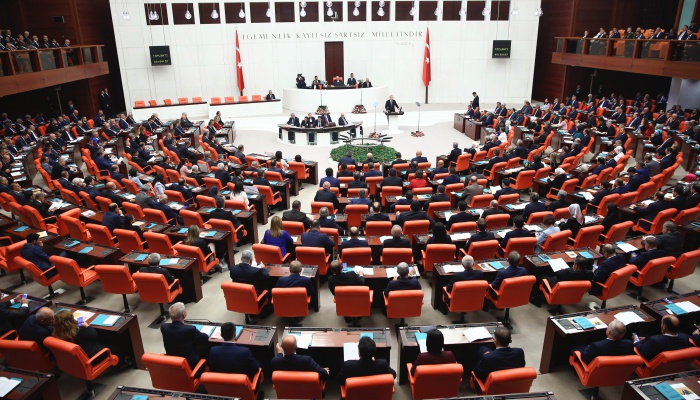A committee in the Turkish Parliament on Saturday approved a bill that will allow the release of up to 100,000 inmates from Turkey’s overcrowded prisons due to the COVID-19 outbreak; however it excludes those who have been imprisoned on terrorism charges, according to Turkish media reports.
The bill, which was approved by the Parliament’s Justice Committee, was proposed by the ruling Justice and Development Party (AKP) and its ally, the Nationalist Movement Party (MHP).
Although representatives from the other political parties in parliament such as the Republican People’s Party (CHP), the Kurdish Peoples’ Democratic Party (HDP) and the İYİ (Good) Party, put forward some 100 amendments to the bill, they were rejected by the AKP and the MHP deputies.
The bill will be put to a vote next week and should significantly reduce the population in Turkey’s overcrowded prisons, a key priority in efforts to prevent rapid transmission of COVID-19 among detainees and staff. It would provide early release on parole and house arrest for several categories of prisoners, among them pregnant women, older people with medical conditions and those with limited sentences left to serve.
However, tens of thousands of inmates who are behind bars for alleged links to the Kurdistan Workers’ Party (PKK) or the Gülen movement, which Turkey deems a terrorist organization and accuses of orchestrating the 2016 failed coup despite the fact that the movement strongly denies any involvement, will not benefit from the new law.
Turkey has detained, prosecuted, and convicted thousands of civil servants, lawyers, politicians, activists, and journalists for alleged links to these groups, although there is no evidence they committed violent crimes, incited violence or provided logistical support to outlawed armed groups.
According to a statement from Human Rights Watch last week, the blanket terrorism exclusion in the bill covers all prisoners convicted of terrorism offenses, makes no mention of detainees in detention before or during trial for terrorism offenses and makes no allowance for those in either group with chronic medical conditions for whom COVID-19 poses a greater risk. Among the latter are individuals who were convicted of committing violent activities.
In the context of the COVID-19 pandemic, the Council of Europe’s European Committee for the Prevention of Torture (CPT) has recommended that governments provide alternatives to deprivation of liberty to ease overcrowding and offer “screening for COVID-19 and pathways to intensive care” for those most vulnerable.
Most journalists, politicians and rights defenders in prison are still on remand facing trial on terrorism charges. Among them are people over the age of 60, including rights defender Osman Kavala and journalist Ahmet Altan. Politicians in prison include Selahattin Demirtaş, who is taking medication for a heart condition, and Gültan Kışanak.
Turkey reported the first case of COVID-19 on March 11, which has so far claimed the lives of more than 500 people in the country.



